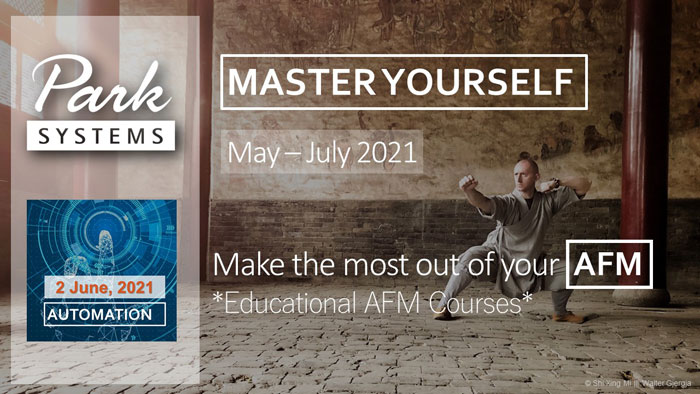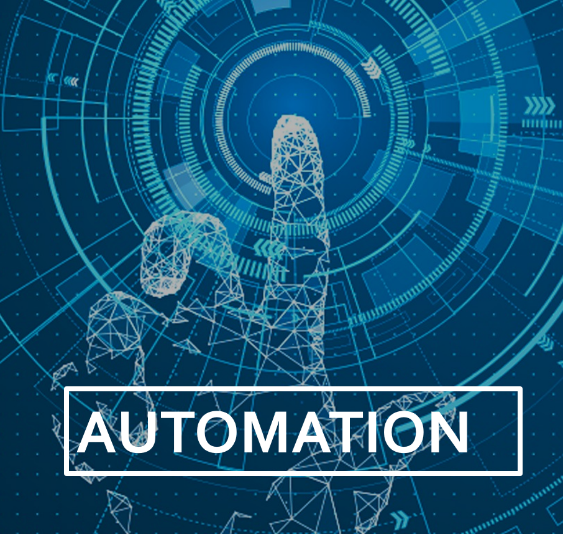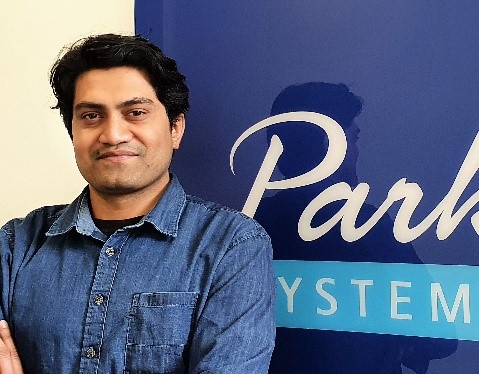
Make the most out of your time: the benefits of easy automation for AFM (StepScanTM, AdaptiveScanTM, FastApproachTM)
Wednesday, 2 June, 2021
- 10:00 am – 11:30 am
(GMT)
London, Dublin - 11:00 am – 12:30 pm
(CET)
Berlin, Paris, Rome - 18:00pm – 19:30 pm
[UTC+9]
Seoul, Tokyo

Abstract:
Atomic Force Microscopy is well known for acquiring images with resolution better than diffraction-limited light microscopies in practically any environment. Versatility of AFM based methods makes it an indispensable tool for researchers in numerous areas such as nanometrology, material science, and biology. When using an AFM, researchers spend significant time on tedious tasks such as aligning the optical beam onto cantilever, finding an area of interest on the sample, and optimizing imaging parameters.
Time consuming trial-and-error optimization of the generic height imaging parameters such as scan rate, gain settings, and setpoint is always required to get some reliable AFM data. Advanced AFM operation modes involve control of additional variables. Interdependencies of the parameters make it challenging to find optimum operating conditions in the parameter space. Moreover, a single instrument is often shared among several researchers of varying AFM skills. Throughput of AFM data by a researcher is further reduced either due to limited software tools or a steep learning curve of the user interface.
Park Systems’ SmartScan software provides parameter automation while also allowing full manual control in a user-friendly interface. This makes Park AFMs efficient tools for novices and experts alike. Unique automation features such as FastApproachTM, AdaptiveScanTM, and StepScanTM allow users to make the most out of their AFM time. In this webinar we will demonstrate the use of these automation features.

Presented By :
Abdul Rauf, Application Scientist at Park Systems Europe
Abdul is an Application Scientist at Park Systems Europe, where he supports development of AFM solutions for customers. He had his training as a polymer materials’ engineer with emphasis on elastomer blends and composites. Abdul has expertise in characterization of macromolecular systems at interfaces. He worked on his doctoral thesis in the group of Prof. Jürgen P. Rabe in Humboldt-Universität zu Berlin, where he acquired expertise in morphological and nanomechanical characterization of thin films confined in interfaces. His work in Berlin also included study of two-dimensional materials such as monolayers of Graphene, Hexagonal Boron Nitride, and Transition Metal Dichalcogenides as sensors for strain transfer across atomic interfaces.




